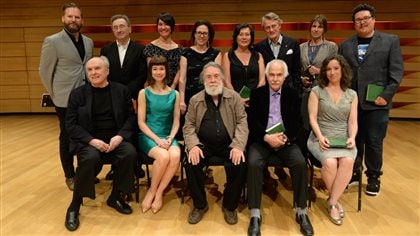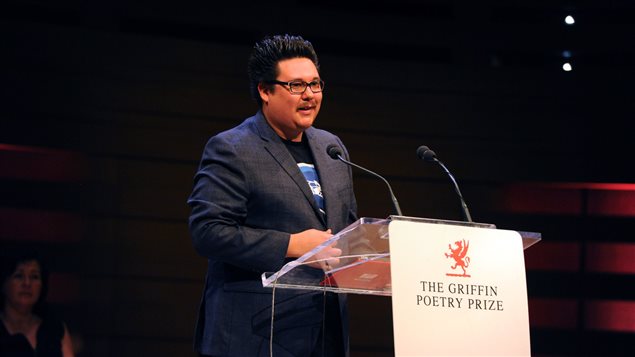The Griffin Poetry Prize for a Canadian work went to Jordan Abel for his most recent collection entitled ‘Injun’.
“This is a win for all the people who fought, and continue to fight against, appropriation and against the architecture of colonialism.” The 32 year-old Nisga’a writer told the audience at the gala celebration in Toronto, last Thursday, June 8th.
Listen“I never though this would happen,”
“As a poet who writes about the difficult issues of racism, colonial oppression and inter-generational trauma, I never though this would happen,” he said.

The Nisga’a people are an Indigenous group in Canada from northwestern British Columbia.
The word “Injun” is a derogatory contraction of the word “Indian” as Canada’s southern First Nations were labelled by early European settlers.
“The whole purpose of this book is to investigate the construction and contours of racism, so a lot of the subject matter that I’m dealing with is very racially charged and difficult.” Abel told me in an interview today.
He was very methodical in how he went about creating this work. It began out of curiosity, he said.
In visiting the website Project Gutenburg, Abel found 91 public domain “western” novels. The kind of books the so-called Cowboy and Indian movies may have been based on.
He began reading through some of them and discovered the word “Injun” coming up again and again.
In searching all 91 novels he came across over 500 sentences that included the word “Injun”.
He extracted them all and cut up the sentence strips creating a new poem.
“My thinking and my investigation was to try to figure out what surrounded this particular instance of, of hatred essentially.” he explained.
While the books are fiction, the truth of Canadian history and indigenous history has been obfuscated by these narratives.
“The problem is that the western genre is so… and people are so nostalgic for it, there’s such an enormous investment in that particular genre that at some point, because of our collective investment in the western, and in westerns, it ceases to become a fiction and starts to become a way that we conceptualise the past, and a way that we fictionalise the genocide of indigenous peoples.” Abel says.
Abel is currently working on a PhD at Simon Fraser University in Vancouver focusing on the many indigenous poets whose work is largely unknown by many Canadians.
He has two previous collections of poetry,The Place of Scraps, which was a finalist for the Gerald Lampert Memorial Award and won the Dorothy Livesay Poetry Prize, and Un/inhabited.
The Griffin Poetry Prize is one of the most lucrative in the world, and it celebrates Canadian and international work. The winners receive $65,000 (Cdn).
The finalists in both categories receive $10,000 (Cdn) each, and all have their books presented in leather-bound editions as keepsakes of the experience.
This year the three-person panel of judges included Sue Goyette, the Canadian, George Szirtes from the UK, and Joan Naviyuk of the United States.
To chose the finalists, they read 617 books, from 39 countries which included 23 translations.
The winner of the International prize was Alice Oswald for her work ‘Falling Awake’.







For reasons beyond our control, and for an undetermined period of time, our comment section is now closed. However, our social networks remain open to your contributions.